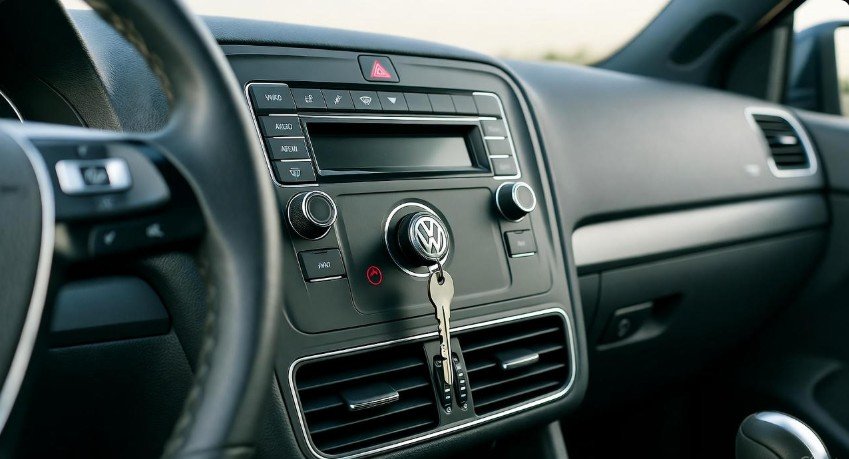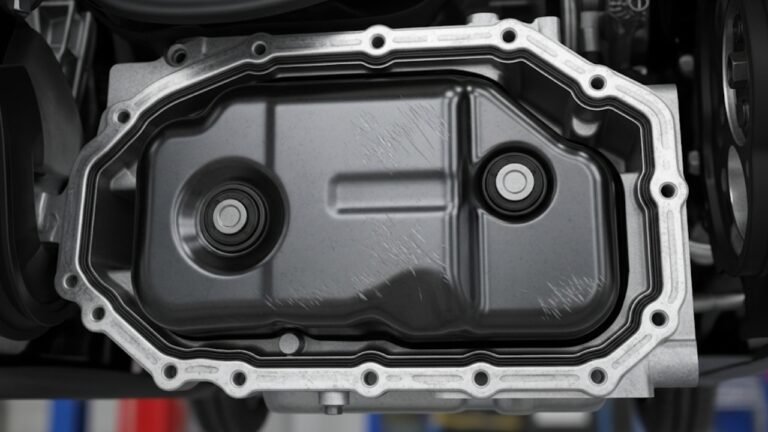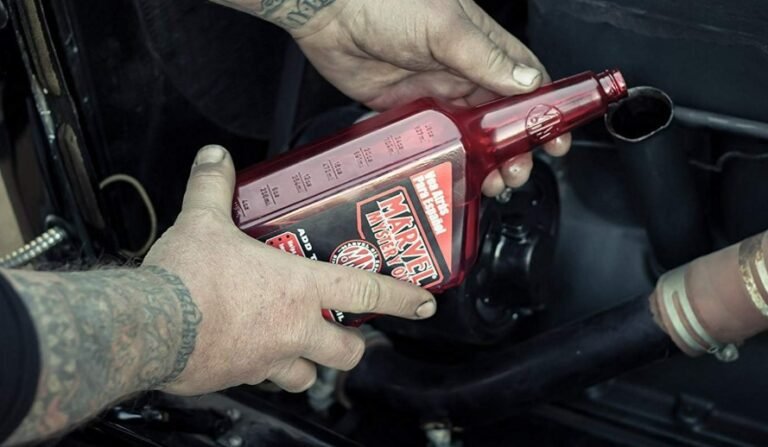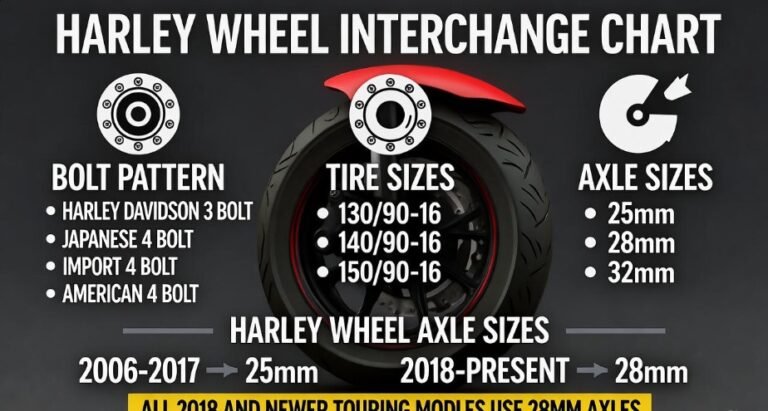Fixed: Volkswagen Key Won’t Turn in Ignition

Dealing with a Volkswagen key that won’t turn in the ignition is one of those frustrating experiences that can ruin your morning commute or weekend plans. You insert your key, turn it, and… nothing. It feels like your car has suddenly developed a mind of its own. But don’t panic. This is a common issue among Volkswagen owners, and the good news is that most of the time, it’s fixable without replacing your entire ignition system. Understanding the causes and solutions can save you time, money, and a lot of stress.
From worn-out keys to faulty ignition cylinders and steering wheel locks, there are multiple reasons why your key might refuse to cooperate. In this guide, we’ll explore the causes, practical solutions, and preventive measures. Whether you’re a DIY enthusiast or prefer professional help, you’ll gain the knowledge to tackle this issue confidently and get your Volkswagen back on the road.
Worn-Out Key: The Silent Culprit

One of the most common reasons a Volkswagen key won’t turn in the ignition is simple wear and tear. Keys aren’t invincible. Over time, repeated use can cause scratches, bends, or worn edges that prevent the key from engaging the pins in the ignition cylinder. Even a seemingly minor imperfection can block smooth rotation.
A telltale sign of a worn key is difficulty inserting or removing it from the ignition. If you notice unusual resistance, it’s time to inspect your key carefully. In many cases, trying a spare key can help determine if the original key is at fault. If the spare works smoothly, the key is the problem, not the ignition itself.
To fix this, consider visiting a professional locksmith or a Volkswagen dealership to cut a new key. Modern keys often come with chips or transponders, so getting a properly programmed replacement is crucial. Regularly inspecting your key and using it gently can prevent premature wear and save you from being stranded unexpectedly.
Ignition Lock Cylinder Problems
If a spare key doesn’t solve the problem, the issue might lie within the ignition lock cylinder itself. This component is the heart of the ignition system, and over time, dirt, debris, or internal wear can cause it to jam. When the cylinder malfunctions, your key may feel stiff, get stuck, or fail to turn entirely.
Attempting to force the key can worsen the problem, potentially damaging the cylinder or the key. One of the best remedies is to have a locksmith or certified technician replace the ignition lock cylinder. While this might sound intimidating, modern Volkswagen cylinders are designed for relatively straightforward replacement, especially when handled by professionals.
Lubrication can also help in some cases. Using a graphite-based lubricant inside the cylinder can reduce friction and allow the key to turn smoothly. Avoid using oil-based sprays, as they attract dirt and can exacerbate the problem over time.
Steering Wheel Lock: A Hidden Barrier
Another sneaky culprit behind a key that won’t turn is the steering wheel lock. Volkswagen vehicles are equipped with this security feature to prevent theft. If the steering wheel is turned after removing the key, the lock may engage, making it impossible to rotate the key in the ignition.
Resolving this is often simple. Gently jiggling the steering wheel left and right while turning the key can disengage the lock. It’s crucial not to force the key aggressively, as this can break the key or damage the ignition. Understanding how the steering lock works ensures that you can address this problem quickly without escalating the damage.
Always remember that this is a normal function, not a malfunction. Treating it with patience and care can save you from unnecessary panic and expensive repairs.
Lubrication: The Simple Fix You Might Be Overlooking
Sometimes, the fix is as simple as lubricating the key and ignition. Over time, small particles of dirt or dust can accumulate inside the ignition cylinder, creating friction that prevents smooth rotation. Proper lubrication can often restore functionality without replacing any components.
To do this safely, use a graphite or silicone-based lubricant. Apply a small amount to the key, insert it into the ignition, and turn it gently several times to distribute the lubricant. Avoid sprays that contain oil, as they attract dust and can worsen the problem.
Cleaning the key itself before inserting it also helps. Even a small buildup of grime on the key can create enough resistance to prevent it from turning. Regular maintenance and care can extend the life of both your key and ignition system, preventing future headaches.
Battery and Electrical Checks: An Overlooked Factor
It might surprise you, but a weak battery or poor electrical connections can contribute to a Volkswagen key not turning in the ignition. Many modern Volkswagens have electronic components in the ignition and key system. If the battery voltage is too low, it may interfere with the transponder recognition, making the ignition unresponsive.
Start by checking the battery’s condition. Ensure the terminals are clean and free of corrosion, and confirm that the battery is fully charged. Testing the electrical system for continuity can help identify hidden issues. A well-maintained battery and clean connections not only improve key functionality but also prevent broader starting problems.
Regular battery maintenance is a simple, cost-effective step that can save you from unexpected key failures and ensure a smoother start every time.
Resetting the Immobilizer System
Modern Volkswagens are equipped with an immobilizer system to prevent unauthorized use. While this is a great security feature, it can sometimes interfere with your key turning in the ignition. If the car doesn’t recognize the key, it may block the cylinder from rotating entirely.
Resetting the immobilizer system is often a simple process. Start by ensuring the key battery is functional, as a weak battery can prevent proper communication. Also, check that the steering wheel isn’t locked and that the gear shift is in park (for automatic transmissions) or neutral (for manual transmissions). Some Volkswagens require inserting the key and holding it in a certain position for a few seconds to reset the system.
If these steps don’t work, it’s best to consult a professional locksmith or Volkswagen dealership. They have the tools and knowledge to reset or reprogram the immobilizer safely. Addressing immobilizer problems promptly ensures you aren’t left stranded and maintains the security of your vehicle.
When Professional Help Is Necessary
While some key and ignition issues can be solved with DIY methods, there are times when professional assistance is essential. Complex problems with the ignition lock cylinder, key transponder, or steering mechanism may be beyond casual repair.
Reliable signs that you need a professional include persistent key jamming, visible damage to the key, repeated ignition lock failures, or electronic issues that prevent the car from recognizing the key. Seeking professional help early prevents further damage, which could lead to more expensive repairs.
A certified locksmith or dealership technician can accurately diagnose the issue, whether it involves replacing the ignition cylinder, reprogramming the key, or fixing electronic components. Investing in expert service often saves time, money, and stress in the long run.
Understanding Costs and Repair Options
Repairing a Volkswagen key that won’t turn in the ignition can vary in cost depending on the root cause. Replacing a worn key is typically inexpensive, often under $100 when done by a locksmith, though dealership programming fees may raise the price.
Replacing an ignition lock cylinder is more involved and can range between $150 and $400, depending on the model and labor charges. Electronic issues, such as transponder or immobilizer malfunctions, may cost more due to the specialized tools required.
Choosing between a dealership and an independent shop is also a factor. Dealerships offer certified parts and trained technicians, which guarantees compatibility but often comes at a premium. Independent locksmiths or repair shops can offer affordable solutions, but it’s crucial to verify their expertise and reputation. A careful evaluation ensures that you receive high-quality service without overspending.
Benefits of Regular Maintenance and Care
Preventing key issues is far easier than fixing them. Regular maintenance of your Volkswagen’s ignition system can extend its life and prevent frustrating incidents. Simple steps like inspecting keys for wear, lubricating the ignition cylinder, and cleaning electrical connections can make a huge difference.
Preventive care also helps detect early signs of potential problems. For instance, slight stiffness in the key or occasional difficulty turning can indicate a worn cylinder or key. Addressing these signs early avoids being stranded or dealing with emergency repairs.
Maintaining your ignition system contributes not only to convenience but also to the overall reliability of your vehicle. By investing a little time and effort regularly, you save both money and stress in the long term.
Practical Tips to Avoid Key and Ignition Issues
Here are some actionable steps to minimize the chances of your Volkswagen key getting stuck or refusing to turn:
-
Use your keys gently; avoid applying excessive force.
-
Rotate the steering wheel slightly while turning the key to prevent lock engagement.
-
Keep the ignition cylinder clean and free of dust or debris.
-
Lubricate the key and cylinder with a graphite-based or silicone lubricant periodically.
-
Ensure the car battery is in good condition with clean, corrosion-free terminals.
-
Always use a spare key occasionally to check for wear or issues with the primary key.
By integrating these simple habits into your routine, you can maintain a smooth-starting Volkswagen for years to come.
Frequently Asked Questions (FAQs)
1. Why won’t my Volkswagen key turn even though it’s not damaged?
This could be due to a locked steering wheel, a weak battery, or a malfunctioning ignition cylinder. Check the steering wheel position and battery first before exploring more complex issues.
2. Can I use graphite lubricant on any Volkswagen key?
Yes, graphite-based lubricants are safe for all keys and ignition cylinders. Avoid oil-based lubricants as they can attract dirt and worsen the issue.
3. How do I know if the ignition cylinder needs replacing?
Signs include the key getting stuck frequently, feeling loose, or turning inconsistently. If a spare key doesn’t help, the cylinder is likely worn or damaged.
4. Can a locksmith reprogram my Volkswagen key?
Absolutely. Professional locksmiths and dealerships can reprogram or replace transponder keys safely, ensuring full functionality.
5. Is it safe to force the key if it won’t turn?
Never force a key. Doing so can break the key or damage the ignition cylinder, leading to costly repairs.
6. How much does it cost to replace an ignition lock cylinder on a Volkswagen?
Costs typically range from $150 to $400 depending on the model and labor. Electronic or transponder-related issues may cost more.
7. Can a weak car battery prevent the key from turning?
Yes, low voltage can interfere with electronic ignition systems, including key recognition, making it difficult to turn the key.
8. How can I prevent ignition problems in the future?
Regular maintenance, gentle key use, periodic lubrication, and checking the battery and electrical connections can prevent most issues.
Conclusion
A Volkswagen key that won’t turn in the ignition doesn’t have to ruin your day. From worn-out keys to faulty ignition lock cylinders, steering wheel locks, or electronic immobilizer issues, most causes are manageable with careful troubleshooting.
Start with the simplest solutions: inspect the key, check the steering wheel, and lubricate the cylinder. If the problem persists, consider professional help to replace the ignition cylinder or reprogram the key. Regular maintenance, battery care, and gentle handling of the key can prevent future problems and extend the life of your ignition system.
By understanding the root causes and taking proactive steps, you can regain control of your Volkswagen, avoid emergency breakdowns, and enjoy a smoother, worry-free driving experience.






